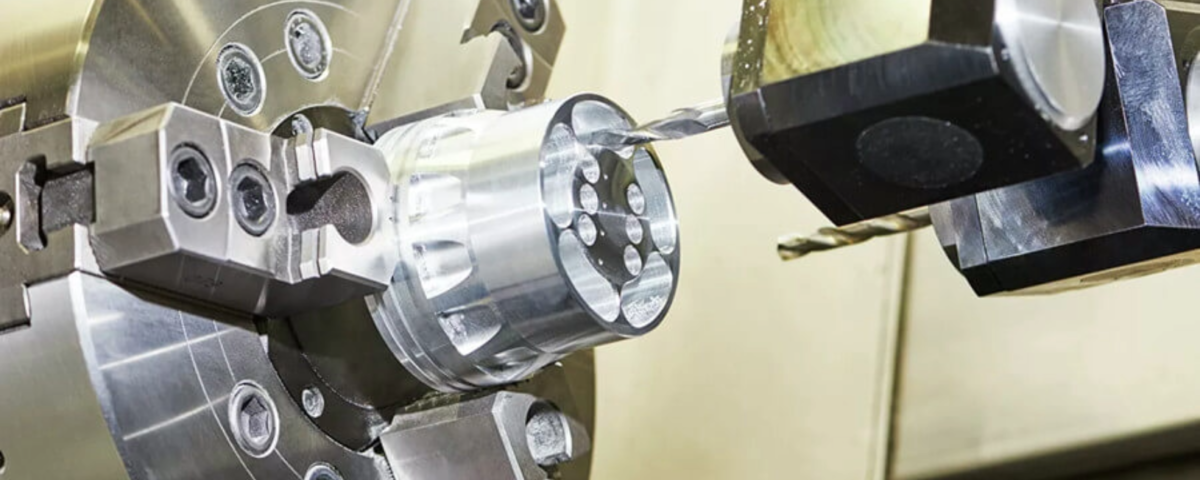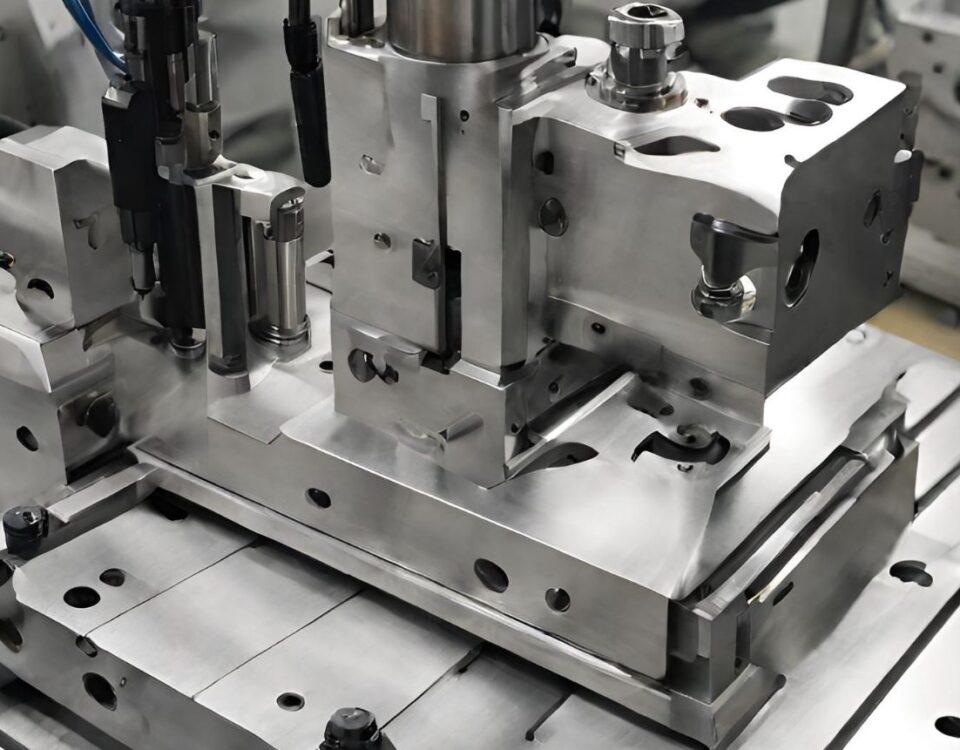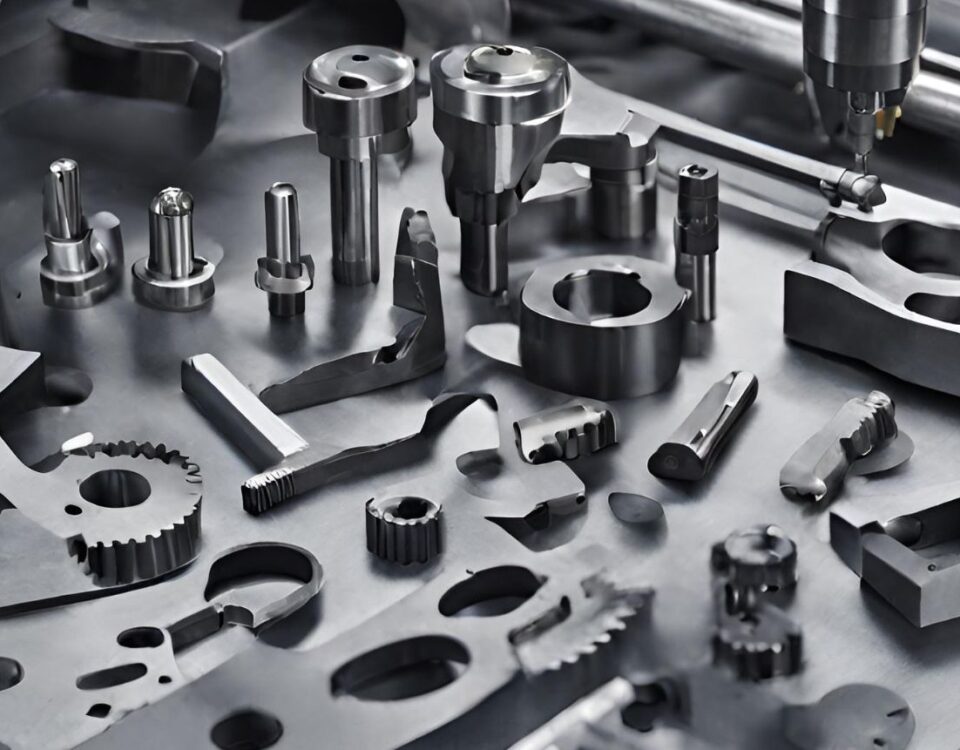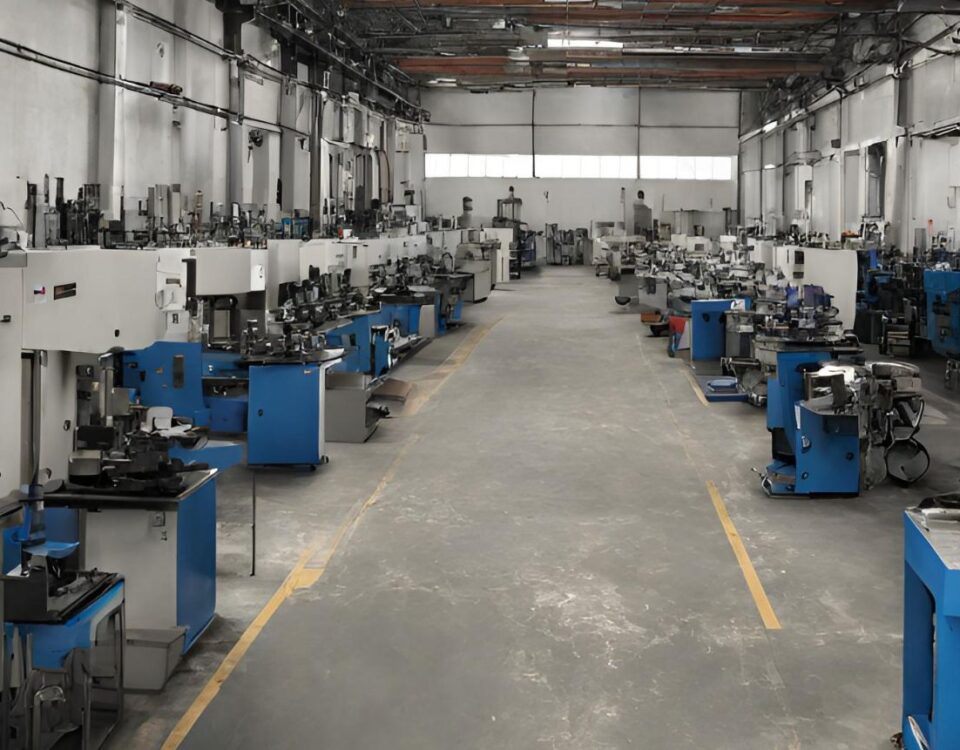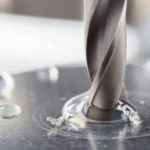
CNC Machining Acrylic with Features
16 November 2023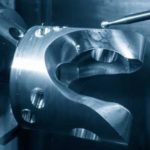
Precision Unleashed: Elevate Your Designs With 5 Axis CNC Machining
22 November 2023What is Custom Machining
Custom machining refers to the process of manufacturing or fabricating parts, components, or products according to specific customer requirements. It typically involves using specialized machines and tools to shape, cut, or modify materials such as metal, plastic, or wood. Custom machining allows for precise and accurate production of parts that are tailored to meet unique specifications, tolerances, or designs. This can include tasks like CNC (Computer Numerical Control) machining, milling, turning, drilling, grinding, or other machining operations. The goal of custom machining is to create high-quality, customized parts that fit the exact needs of the customer.
Types Of Custom Machining Services
-
CNC Milling
CNC milling is a machining process that uses computer numerical control (CNC) machines to remove material from a workpiece using rotating cutting tools. It is a versatile and precise method that allows for the creation of complex shapes and features.
In CNC milling, the workpiece is securely clamped onto a worktable, and the cutting tool, typically a rotating end mill, is guided by a computer program to remove material in a specific pattern or design. The CNC machine accurately controls the movements of the cutting tool along multiple axes, such as X, Y, and Z, to achieve the desired shape and dimensions.
CNC milling offers several advantages over conventional manual milling methods. It provides greater precision, repeatability, and efficiency. The computer-controlled nature of the process allows for intricate and detailed designs to be accurately reproduced. Additionally, CNC milling can be used with a wide range of materials, including metals, plastics, and composites.
This process is widely used in various industries, such as automotive, aerospace, electronics, and manufacturing, for producing components, parts, prototypes, and molds. It is particularly suitable for creating complex shapes, pockets, slots, contours, and surface finishes with high accuracy and efficiency.
-
CNC Turning or Lathing
CNC turning, also known as CNC lathing, is a machining process that involves the rotation of a workpiece while a cutting tool removes material to create cylindrical shapes. It is commonly used to produce parts such as shafts, rods, pins, and threaded components.
In CNC turning, the workpiece is clamped and rotated on a spindle, while the cutting tool is guided by a computer program to remove material from the rotating workpiece. The cutting tool can move along multiple axes, such as X and Z, to shape the workpiece according to the desired design.
CNC turning offers several advantages over manual turning methods. It provides high precision and repeatability, allowing for consistent and accurate production of parts. The computer-controlled nature of the process enables complex geometries, internal and external threads, and precise dimensions to be achieved.
This process is widely used in various industries, such as automotive, aerospace, medical, and general manufacturing. It is particularly suitable for creating rotational symmetric parts with tight tolerances. CNC turning can be performed on materials such as metals, plastics, and wood, making it a versatile machining process.
-
CNC Multi-Spindle Machine
A CNC multi-spindle machine is a type of machining equipment that has multiple spindles operating simultaneously to perform various machining operations on a workpiece. Unlike a single-spindle machine that can only work on one part at a time, a multi-spindle machine allows for increased productivity and efficiency by working on multiple parts simultaneously.
In a CNC multi-spindle machine, each spindle is equipped with its cutting tool and can be independently programmed to perform specific operations. This means that multiple operations, such as drilling, milling, tapping, or turning, can be carried out simultaneously on different parts of the workpiece.
The spindles in a multi-spindle machine are typically arranged in a drum or turret-like configuration, allowing for quick and precise indexing or rotation to the desired position. This setup enables the machine to perform a wide range of machining operations in a single setup, reducing the need for manual intervention and setup changes.
CNC multi-spindle machines are commonly used in high-volume production environments where efficiency and throughput are essential. They are well-suited for manufacturing parts such as automotive components, fasteners, fittings, and other small to medium-sized precision parts.
By utilizing multiple spindles, these machines can significantly reduce cycle times and increase overall production output, making them a valuable asset for industries that require high-speed and high-volume machining capabilities.
-
CNC Laser Cutting
CNC laser cutting is a precise and versatile machining process that uses a laser beam to cut through various materials with high accuracy. It is commonly used for cutting flat sheet materials such as metal, plastic, wood, fabric, and more.
In CNC laser cutting, a focused laser beam is directed by a computer-controlled system onto the workpiece. The laser beam delivers a high-energy concentration, melting, vaporizing, or burning away the material along the programmed cutting path. The CNC system precisely controls the movement of the laser beam, allowing for intricate and complex shapes to be cut with minimal material wastage.
-
CNC Drilling
CNC drilling is a machining process that uses computer numerical control (CNC) technology to accurately and efficiently create holes in a workpiece. It is a versatile and widely used method for hole-making operations in various industries.
In CNC drilling, a rotating cutting tool, typically a drill bit, is guided by a computer program to remove material and create holes in the workpiece. The CNC machine controls the movement of the drill bit along multiple axes, such as X, Y, and Z, to position it accurately and drill holes to the desired specifications.
Why Do You Need Custom Machining For Your Business?
All of the features and advantages of on-demand machining are also present in custom machining, whether it be for plastic or metal, such as brass, steel, or aluminum. Pieces from custom machining are useful to a variety of industries, including consumer electronics, defense, automotive, aerospace, and others. Among its advantages are:
High Precision and High-Quality Custom Machined Parts
Custom machining makes it possible to produce complex applications with ease. You can achieve exceptionally high precision with CNC production, even with special features and close tolerances. Additionally, CNC machines generate identical parts repeatedly and consistently up until the very last component of your order is delivered.
Increased Productivity and Efficiency
CNC machines are now able to operate continuously throughout the day. They operate under computer instructions and programs, which removes the chance of human error. They also promise reliable output from the production at the same time.
Timely Production
CNC machining is a subtractive process. It involves removing parts of the role metals to achieve the desired product. The computer control in CNC machines ensures speed maintenance at set limits. This way, it is almost impossible to encounter errors. Moreover, provided there are expert engineers, you can be sure of faster completion of projects. This translates to faster time delivery.
Affordability and Higher Profits
You won't overspend because custom machining incorporates the distinctive design of the product. You typically receive high-quality products at the same time. Over time, all of this adds up to more profits.
When Do You Need A Custom Machining Company?
There are several situations where you may need the services of a custom machining company. Here are a few scenarios where working with a custom machining company could be beneficial:
1. Unique or Complex Designs: If you have a project that requires intricate and complex designs, a custom machining company can help bring your ideas to life. They have the expertise and equipment to handle custom requirements and create parts that match your specific design specifications.
2. Specialized Materials: Some projects may involve working with specialized materials that require specific machining techniques or expertise. Custom machining companies often have experience working with a wide range of materials, including exotic metals, alloys, plastics, and composites, ensuring they can handle your material requirements.
3. Tight Tolerances: When your project requires tight tolerances or precise measurements, a custom machining company with advanced CNC equipment and skilled operators can ensure the accuracy and quality of the finished parts.
4. Prototyping and Small Production Runs: If you need prototypes or small production runs of custom parts, a custom machining company can provide the necessary expertise and equipment to efficiently produce the desired quantity of parts.
5. Time Constraints: When you have time constraints and need quick turnaround times, a custom machining company can often accommodate expedited orders and deliver the parts within your required timeframe.
6. Cost-Effective Solutions: Custom machining companies can provide cost-effective solutions for your specific machining needs. They have the knowledge and experience to optimize the manufacturing process, minimize material waste, and reduce overall production costs.
Working with a custom machining company allows you to leverage their expertise, equipment, and capabilities to meet your unique machining requirements efficiently and effectively. It is a practical choice when you need specialized machining services, complex designs, tight tolerances, or assistance with prototyping and small production runs.
Why You Should Choose Us As Your Custom Machining Company
As an AI language model, I don't know specific custom machining companies or their capabilities. However, I can provide you with some general factors to consider when choosing a custom machining company for your needs. Here are a few reasons why you might consider choosing a particular custom machining company:
1. Expertise and Experience: Look for a company that has a proven track record of expertise and experience in the specific type of machining you require. Consider their industry reputation and the length of time they have been in business.
2. Advanced Equipment and Technology: Ensure that the company has modern, well-maintained equipment and utilizes advanced machining technologies. This ensures precision, efficiency, and the ability to handle a wide range of machining requirements.
3. Skilled Workforce: Check if the company has a team of skilled machinists and engineers who can understand your unique needs, offer technical advice, and execute the machining processes effectively.
4. Quality Assurance: Look for a company that has a robust quality assurance program in place. This includes comprehensive inspections, certifications, and adherence to industry standards to ensure the highest level of quality in the finished products.
5. Customization and Flexibility: Choose a company that can accommodate your specific customization needs and has the flexibility to adapt to changes or modifications during the machining process.
6. Timely Delivery: Consider the company's ability to meet your project timelines and deliver the finished parts within your required timeframe. On-time delivery is crucial to avoid disruptions in your production schedule.
7. Customer Support: Evaluate the level of customer support provided by the company. A responsive and communicative team can address your concerns, provide regular updates on the project's progress, and ensure a smooth collaboration.
8. Competitive Pricing: While pricing shouldn't be the sole determining factor, it's essential to choose a company that offers competitive pricing for its services. Request quotes and compare them with other reputable companies to ensure you're getting the best value for your investment.
Remember to conduct thorough research, read customer reviews, and request references to help you make an informed decision when selecting a custom machining company.
Conclusion
Rapid prototyping is being taken over by custom machining, which offers you numerous advantages throughout product development. Its uses to produce high-quality custom-machined parts are widespread in the consumer electronics, automotive, aerospace, and medical industries.
Our area of expertise at Anebon enables us to produce high-quality parts that satisfy customers. Our experts have excellent relationships with our suppliers and are also skilled in low-volume manufacturing, which enhances our performance. Please get in touch with Anebon at any time if you need high-quality manufacturing services.

